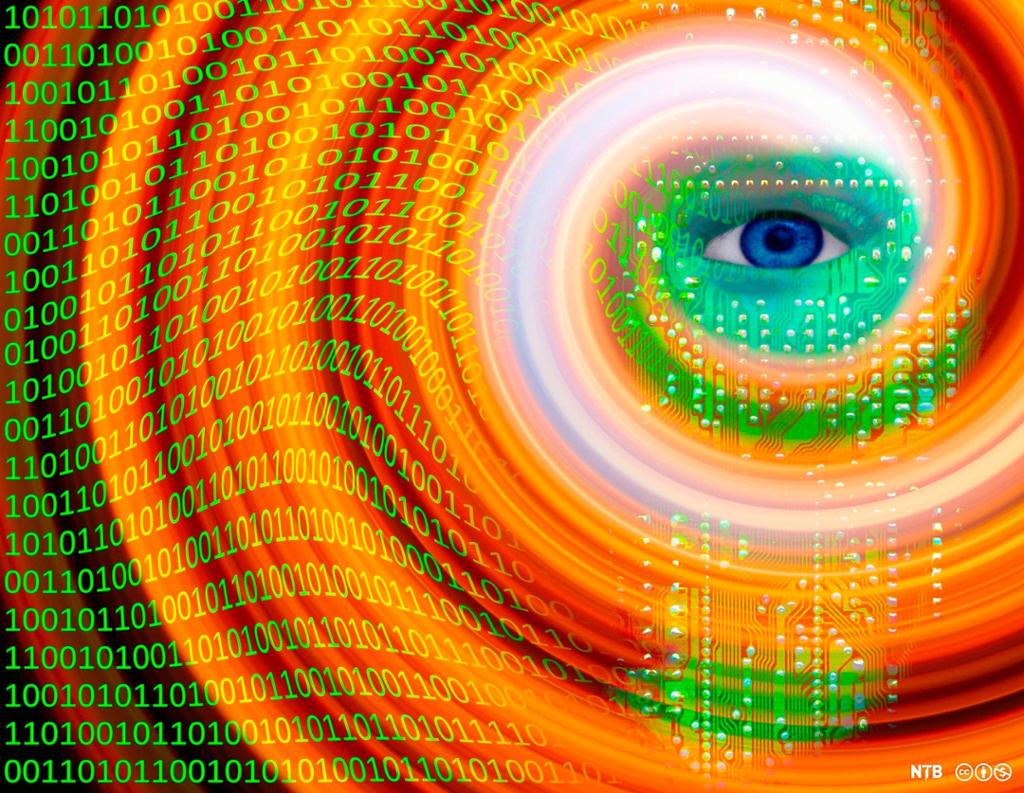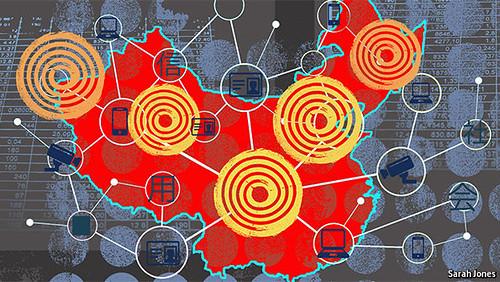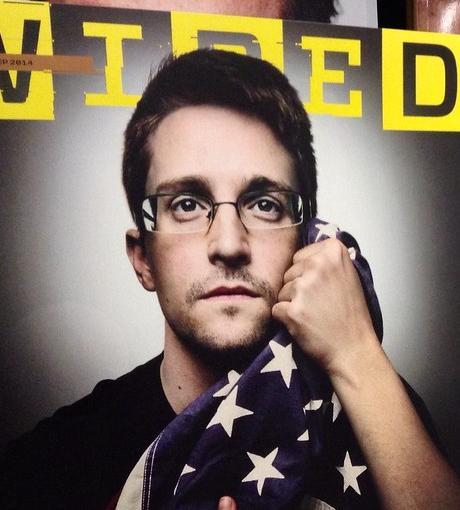Surveillance

Surveillance
Through technological devices like computers, mobile phones, smart watches, CCTV, traffic cameras, and more it is possible to monitor your behaviour 24/7. Data are collected all the time. Most of the collected data are used to make programs and apps work as well as possible, but there are also a number of other uses, most of which we are unaware of.
This multitude of data is collectively known as Big Data. Big data is defined as “very large sets of data that are produced by people using the internet, and that can only be stored, understood, and used with the help of special tools and methods”. These data are extremely valuable, as they allow companies to track potential customers and provide user-specified advertising based on their digital habits.
Big Data is a multi-billion-dollar industry in constant growth. It has been estimated that the global Big Data market will be worth approximately $103 billion by 2023 and that in 2020, every person generates 1.7 megabytes of data every single second. These may be overwhelming figures, but they illustrate the scope of Big Data in our digital society.
One of the most notorious collectors of data is Amazon.com. Former Amazon executive James Thomson stated that “Each opportunity to interact with a customer is another opportunity to collect data.” Amazon founder Jeff Bezos referred to his company’s data collection as having a “customer obsession”.
The telescreen received and transmitted simultaneously. Any sound that Winston made, above the level of a very low whisper, would be picked up by it; moreover, so long as he remained within the field of vision which the metal plaque commanded, he could be seen as well as heard. There was of course no way of knowing whether you were being watched at any given moment.
― George Orwell, 1984
The attacks on the United States on 11. September 2001 led to many countries feeling a need for increased surveillance. A coordinated attack on buses and trains in London in 2005 put additional focus on the need for security in the United Kingdom, and today London has the most surveillance cameras of any city in the Western world. Terrorist attacks in Germany, France, and Belgium have illustrated a need for heightened security in these countries, as did the 2011 terrorist attack in Norway.
The question some people ask is whether citizens are trading in their freedom for safety. Is preventing a terrorist attack worth the price of citizens in a democracy being constantly watched?
One aspect of data collection is identifying vulnerabilities in order to exploit them. For most of us, this simply means that we are bombarded by ads for products we like and have purchased in the past. For someone with a gambling problem, it can mean getting many offers for free games and valuable prizes to keep them gambling. And if you are battling a gambling addiction, this can make it almost impossible to quit.
Some companies track our shopping behaviour, and if we do most of our shopping in places where people with poor credit rating shop, this can make a bank or credit card company regard us as a higher risk customer and deny us loans or credit.
The ads we are shown are based on algorithms that decide what is relevant for us. Research has found that men are shown different adverts for jobs than women. What products are advertised to you will also depend on things like your ethnicity and where you live.
Big Data can also be used to manipulate our political views and opinions. Journalist Carole Cadwalladr has documented how fake articles were posted on people's social media accounts in order to sway their vote in the Brexit referendum. UK's Channel 4 has reported how some voters were sent information intended to get them to stay at home on election day in the 2016 US election.
Data breaches can lead to identity theft. This is a very difficult problem to rectify, and in the past, banks and credit card companies have been quick to blame the victims for identity theft, and the victims may have been left in serious debt. Data breaches may also lead to blackmail and reputation loss.
In dictatorships, there is an inherent lack of trust between the government and the governed. Surveillance is an important tool for dictatorships to spot dissidents and stop them before they can organise opposition and protests. In the old days, you had to place a spy as close to the person as possible. As soon as audio recording was developed, it was employed to keep tabs on people. As technology has become more advanced, so have the methods of surveillance.

While North Korea is the world's most totalitarian society today, China is at the forefront of using technology to control its citizens. Since 2014, China has been testing out a social credit system where the citizens score points when they behave in the way the government wants, and lose points if they behave in ways that are viewed as undesirable.
Walking on a red light, getting in a fight, not paying a bill, speaking unfavourably of the government – these are just some of the behaviours that will count against you and can lead to various forms of punishment. A combination of surveillance cameras in public spaces and monitoring people's electronic devices gives the government extensive knowledge of their citizens.
On the other hand, positive behaviour is rewarded. Helping others, obeying the rules, paying your bills on time, and writing positive posts about the government earn you points that will help you get ahead in society. Being deemed to have a good reputation in the social credit system makes it easier to get a job, a loan, permission to travel abroad and so on. This has made the social credit system quite popular in China. In a lot of ways, it is like a computer game, except you can never stop playing.
The social credit system does not only monitor individual citizens but also companies and even the government.
China's focus on surveillance and monitoring through electronic devices has led to a lack of trust in the country's technology companies. For example, Huawai lost a contract to build Norway's 5G network because of security concerns, and President Donald Trump went far in demanding that TikTok be banned in the United States.
China has also focused on censoring the internet, and a lot of companies are banned in the country, for example Facebook, Google, Youtube, Instagram and many more.
That dictatorships monitor their citizens closely is nothing new. In democratic countries, we usually trust that our ideals of freedom and individual rights prevent the government from monitoring us too closely.
The terrorist attacks on 11. September, 2001, led to the United States wanting to implement extreme measures to prevent something similar from happening in the future. Weeks after the attack, the Patriot Act was passed, giving surveillance agencies extensive powers to carry out surveillance.
In 2013, whistleblower Edward Snowden leaked a vast amount of highly classified information that proved that the US was spying on its own citizens. The National Security Agency employed a mass surveillance program to monitor and listen in on phone calls. Edward Snowden became a hero to many, but he had to flee the United States to avoid being charged with treason.

Edward Snowden's leak also revealed that the US was spying on its allies. This espionage does not seem to have stopped as a result of the leak. In 2020, the Danish Intelligence Service discovered that the US had been spying on citizens in Denmark and other Scandinavian countries.
Study after study has shown that human behavior changes when we know we’re being watched. Under observation, we act less free, which means we effectively are less free.
― Edward Snowden
The EU has had a data directive since 1995 but updated it in 2016. The goal of the General Data Protection Regulation (GDPR) is to strengthen the individual's control over their personal data, and to help regulate the sharing of data internationally. Any enterprise, no matter where it is located, must accept these rules when interacting with EU citizens.
It is because of the GDPR that websites ask your permission to share your data, and it is the reason you are now allowed to accept or deny the sharing of data. Some websites deny EU citizens access because they are unable or unwilling to comply with the EU General Data Directive.
The answer to this question varies depending on who you ask. A data expert would probably say you should be worried and tell you about the measures they take to avoid being watched, for example staying off social media. If you ask the average person, they would probably tell you there's nothing to worry about as long as you are not doing anything wrong. Chances are most of us should be more worried than we are. There are a number of ways our data can be used against us and we do not know enough about who is accessing our data.